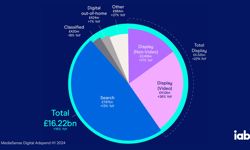First the good news – you have thousands of overseas subscribers dotted around numerous different countries all willing and able to pay you. Now the bad news – it’s your job to collect the dosh. In this age of increasing globalisation it is easy to forget that the process of international invoicing and payment collection is a complete nightmare which if done incompetently will lead to burdensome administrative costs and depressed response. If you’re up for it then you can try to come up with efficient systems yourself; alternatively you can enlist the services of a payment service provider (PSP) like GlobalCollect.
According to GlobalCollect their services allow "your customers to pay anywhere and in anyway." In case your reaction to that claim is "so what" then it is worth recapping on some of the problems associated with international subscriptions. Firstly the most obvious – currency. If you decide to ignore it altogether and deal only in sterling then you will inevitably lose the business of those potential subscribers for whom this is not desirable; either because they do not want to incur the cost or hassle of raising a sterling cheque or because they do not wish to pay by credit card.
Secondly – payment method. Different nationalities favour different payment methods. For instance 70% of all payments in Sweden are made by giro bank transfer, whilst in the Netherlands less than 1% of payments are by cheque. Marketing campaigns to countries like Sweden and Germany where giro payments are preferred need to offer local bank transfer if they are to stand any hope of success. Setting up and maintaining local bank accounts in all the countries you do business in is an extremely onerous task.
Thirdly – reconciliation. If you are marketing in three different currencies and are offering three different payment methods (credit card, cheque and bank transfer) then you have at least nine different reconciliation processes to complete every week / month.
Local knowledge
It was to provide a solution to these problems that GlobalCollect (a wholly owned subsidiary of TPG) evolved in the early 90s. By establishing a network of local bank accounts and agreements with postal and banking authorities GlobalCollect was able to provide publishers with the benefits of their local knowledge. In their words, this allowed publishers to "outsource all the activities associated with collecting, handling and settling of payments" to one contact point.
Traditionally the GlobalCollect (GC) system works like this: the publisher provides GC with an electronic file of all the subscribers who need invoicing. GC then merges this with agreed templates and posts out from their Netherlands HQ. The response is then channelled back to GC’s central response centre either through the banking network in the case of giro payments or in reply paid envelopes for cheque and credit card payments. GC then matches the payments against the open invoices, consolidates the money and feeds two things back to the publisher. The first is the money (in the publisher’s chosen currency) and the second is the daily report file with reconciled payment information.
New release
GlobalCollect is in the process of developing a major new release of one of their core products – InvoiceCollect. Essentially this will allow publishers to take control of the whole process via a web based interface. Publishers will be able to maintain their own archive of mailing templates and artwork, have direct access to their business rules, submit test files direct to the interface, set up and manage end-to-end testers and manage the full range of fulfilment and despatch options. An image of every single despatch is archived and is retrievable either for monitoring or customer service purposes. A much greater degree of control is achieved and publishers can even eyeball each outgoing invoice onscreen before "releasing" it for despatch. It also gives the publisher the option to select from multiple output channels including post, fax, SMS and e-invoicing.
For the last six months GlobalCollect has been developing the new release in consultation with a number of their clients including Financial Times, The Economist and International Herald Tribune. It will be pilot tested in January 2004 and then rolled out to existing and new customers from the end of first quarter 2004.
If you would like more information about InvoiceCollect or GlobalCollect’s other services then you can contact Paul van Alfen on +31 (0) 65 370 47 96 / paul.vanalfen@globalcollect.com or visit www.globalcollect.com
FEATURE
Simplifying international payment collection
Wading through reconciliation reports? Seething at bank charges? Wondering why no one from Holland has sent you a cheque? Perhaps you should be outsourcing your international payment collection. InCirculation talks to Paul van Alfen of payment service provider GlobalCollect.










